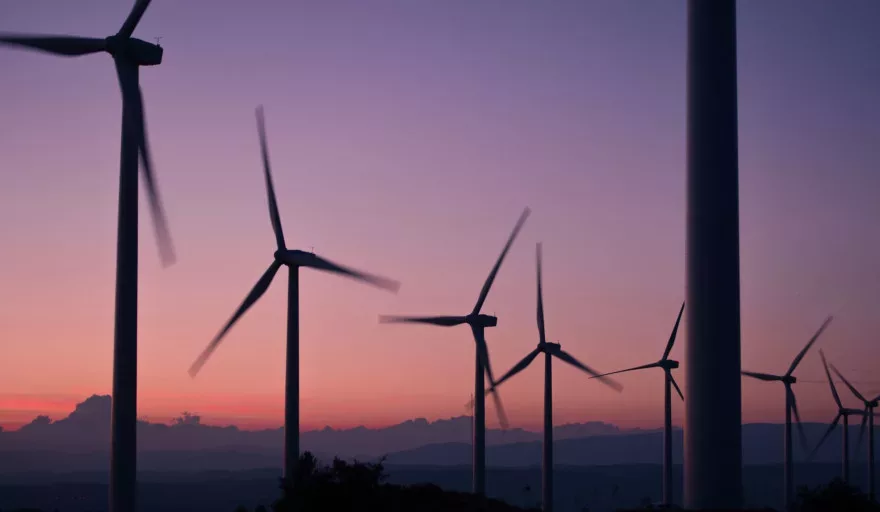Southeast Asia is quickly becoming one of the most enterprising parts of the global energy system. According to the International Energy Agency, the energy demand of the Association of Southeast Asian Nations (ASEAN) and its 10-member countries has grown 60 percent in the past 15 years, while forecasts show that this could again rise by almost two-thirds come 2040.
Combined with an expectation that the region’s economy will triple in size and its total population will grow by approximately a fifth, rapid growth is dictating that the provision of reliable, affordable and sustainable energy is becoming more pressing than ever.
With this in mind, maintaining strategic oversight will be crucial in the decades ahead – oversight that the ASEAN Centre for Energy (ACE) is helping to provide.
An organisation that’s history dates back to 1976, established in the face of a greater need for political and economic collaboration, ACE has become a figurehead of progression for the continent’s energy industry.
“Simply put, ACE’s vision is to accelerate the integration of energy strategies within ASEAN by providing relevant information and expertise, ensuring that energy policies and programmes are built in harmony with the region’s economic growth and sustainability goals,” states Christopher Zamora, the organisation’s acting Executive Director.
Having worked in the energy sector for 34 years, Zamora brings notable experience to the role and to ACE.
“Myself? I spent 12 years with the Philippine Department of Energy who then seconded me to the ASEAN European Community Energy Management Training and Research Centre (AEEMTRC) where I worked from 1996 to 1998,” he reveals. “Thereafter AEEMTRC was transformed by the ASEAN member states into ACE – an organisation that I have been working under for the past 23 years.”
THE ENERGY THINK TANK
Headed up by Zamora, the centre has been effectively identifying and surfacing innovative solutions that have been crucial in helping to tackle the energy challenges facing Southeast Asia for years.
Research forms a core part of its operations and, to this end, ACE produces an annual ASEAN Energy Outlook that provides a knowledge depository for ASEAN states in the form of the ASEAN Energy Database System.
“This system helps to strengthen collaboration by coordinating, facilitating, integrating and implementing deliverables on the ASEAN Plan of Action for Energy Cooperation (APAEC), an initiative running between 2016-2025 that aims to provide the platform for collective progression,” explains Zamora.
Currently in the latter stages of its first phase, ACE is able to cover a broad range of industry segments through APAEC due to its seven diverse programmes, namely ASEAN Power Grid, Trans-ASEAN Gas Pipeline, Coal and Clean Coal Technology, Energy Conservation & Efficiency, Renewable Energy, Regional Energy Planning & Policy and lastly, Civilian Nuclear Energy.
“We act as a thinktank, a knowledge hub and a catalyst which help sub-sector networks and specialised energy bodies to implement the APAEC,” Zamora continues.
A SUSTAINABLE STANDPOINT
‘Enhancing Energy Connectivity and Market Integration in ASEAN to Achieve Energy Security, Accessibility, Affordability and Sustainability for All’ is the theme of the 2016-2025 APAEC, directing much of ACE’s recent attentions towards the renewable and sustainability segment.
“The seven plans that we have ongoing are very much geared towards this,” explains Zamora. “For example, we have an aspirational target that 23 percent of ASEAN’s energy will be of renewable origin by 2020, and that there will equally be a 20 percent reduction in energy intensity.
“We ecourage all stakeholders to adopt cleaner coal technologies, since ASEAN still has abundant sources of coal while electrification rates are still very low in some areas.
“Further, ACE also continues to assist member states in their adoption of best practices in other ways such as the ASEAN Energy Awards, a ceremony for institutions and organisations alike which have already implemented the best practices in the energy sector.”
Working tirelessly towards achieving the targets laid out in the APAEC blueprint, ACE works extensively with each of the 10 member states, regardless of any differentiation in their economic development, GDP per capita, energy resources, energy production and energy consumption levels.
“We emphasise the importance of regionality in order to achieve energy security, accessibility, affordability and sustainability,” Zamora adds, “and in regard to regionality, ACE ensures that energy activities will provide benefits and opportunities to all ASEAN members.”
EXPLOITING THE OPPORTUNITIES
Looking to the future, ACE will continue to help deploy and integrate successful strategies and solutions across the region, driven by an increasing need for Southeast Asia to adapt and prepare for the impending acceleration of the fourth industrial revolution.
“At the 30th ASEAN Summit on April 29, 2017 in Manila, regional leaders recognised the need for ASEAN to maximise new opportunities in technology and innovation, human capital, regulatory frameworks, infrastructure and connectivity, as well as inclusive and sustainable growth,” Zamora reveals.
“Thus, besides our alignment with the APAEC blueprint, digitalisation will undoubtedly become a major factor in our future predictions and forecast of ASEAN’s energy sector.”
Combined with influx of differentiated and effective industry technologies, the centre has also identified that the renewable energy segment is beginning to strive in the region. The likes of Vietnam, Malaysia and Thailand, for example, are increasingly leveraging the power of solar photovoltaic energy, while Indonesia is expected to develop more wind turbines in the coming years.
These things in mind, it seems renewable energy, alongside technology, may be crucial in allow ACE to achieve its expansive APAEC goals in the next six years.
Zamora concludes: “The full potential of ASEAN’s renewable energy is still untapped, so there are a lot of opportunities to accelerate implementation of such solutions, making the renewable energy industries key to ASEAN energy sector’s development.
“In my eyes, this will be the rising star of the future.”




































